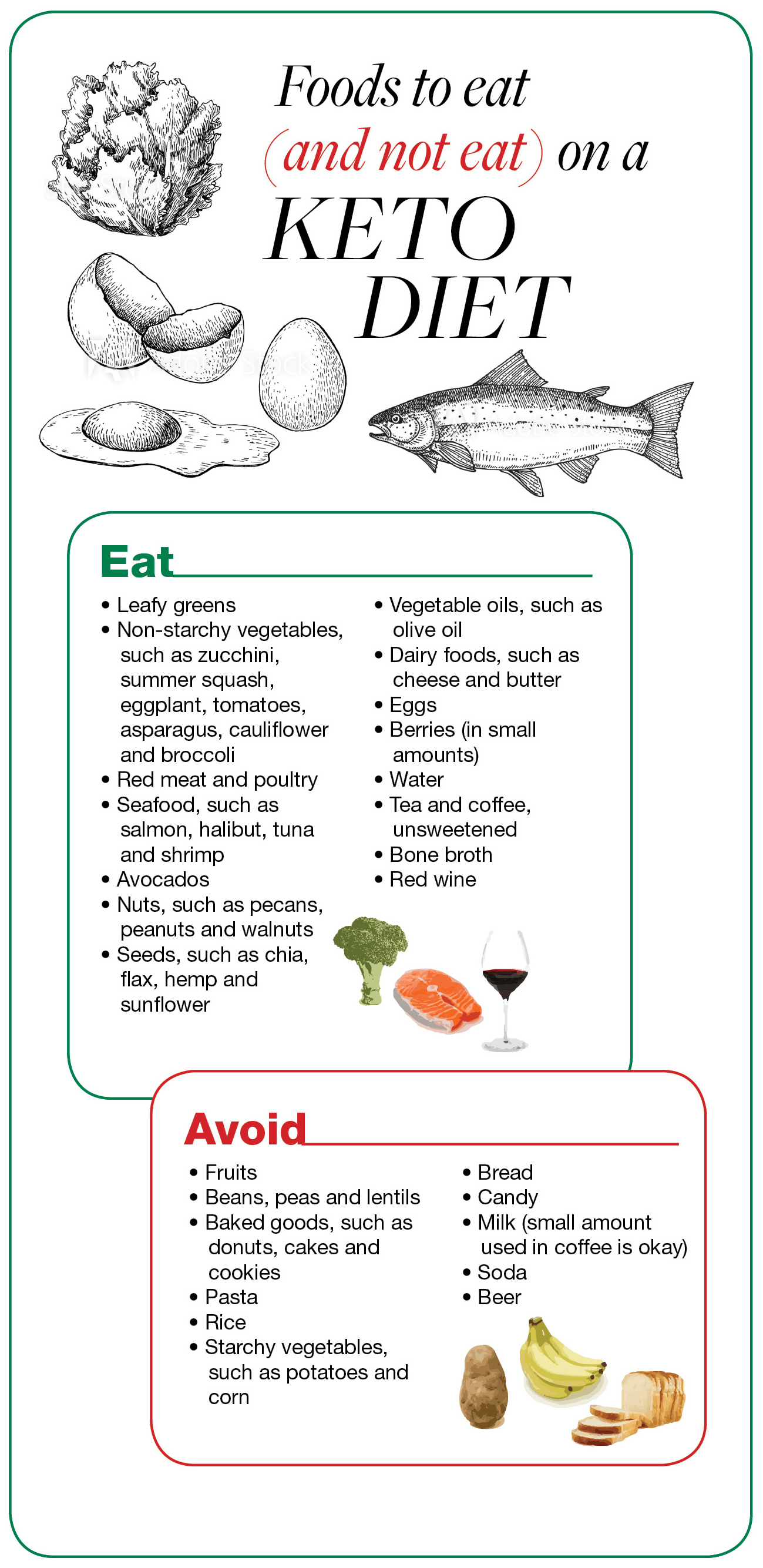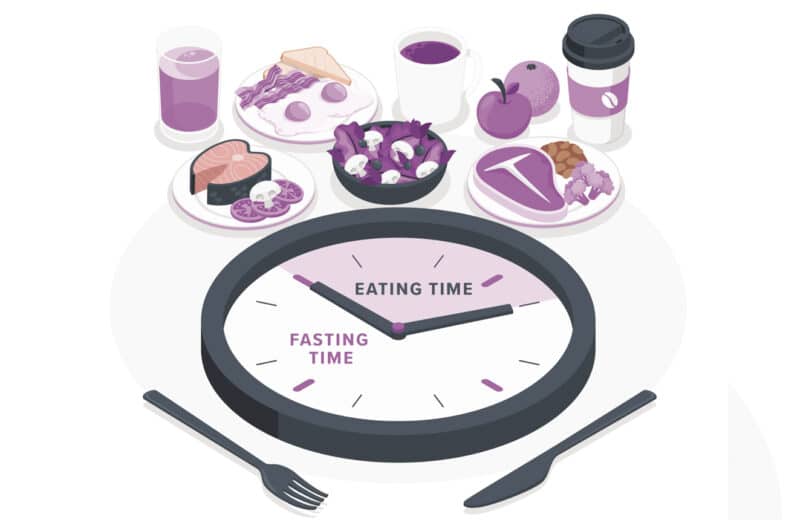Keto diet changes how food is turned into energy
While it may seem like the newest weight-loss trend, the ketogenic (keto) diet has been around for more than 100 years. Allowing few carbohydrates, the keto diet changes the way the body turns food into energy. It induces the fat-burning state of ketosis, a metabolic process in which the body uses fat for energy instead of carbs.
The keto diet has its roots as a therapy for reducing seizures in epileptic patients. Its high-fat, moderate-protein, low-carbohydrate protocol has proven to be beneficial for reducing seizures. But does it work for weight loss?
The term “ketogenic” comes from the ketone bodies that are produced when fat is metabolized for energy.
“By limiting carbohydrate intake, keto diets cause the body’s metabolism to transition from using glucose — the body’s most basic form of carbohydrate — to using fat and the byproduct of fat breakdown (ketones) for energy,” says Kelly Roehl, RDN-AP, LDN, CNSC, a dietitian nutritionist at Rush University Medical Center. “Ketogenic metabolism allows the body access to its stored energy (fat), which is what it’s there for, after all.”
Keto proponents contend that a consistent state of ketosis may reduce inflammation and oxidative stress, two culprits for weight gain and obesity. “Inflammation can cause an avalanche of abnormal metabolic processes, including obesity,” says Robyn Blackford, RDN, LDN, a ketogenic dietitian expert at the Ann & Robert H. Lurie Children’s Hospital of Chicago’s Epilepsy Center.
Eating fat for weight loss
Many keto dieters see initial weight-loss success but then have a hard time following it long-term.
“I felt pretty good when I could stay successfully in ketosis,” says Alex Solomon, a Chicagoan who tried a keto diet for six months and lost 15 pounds. “I saw a lot of [weight loss] success initially, until about the four-month mark, and then my weight loss plateaued.”
The challenge is in sticking with the ideal balance of nutrients to maintain ketosis. It’s not easy in our carb- heavy food environment, which can thwart even the most dedicated keto dieter.
“It was difficult staying on the diet in social settings, plus it was a horrible feeling when I accidentally left ketosis, as if I was going to be set back for weeks by any [eating] mistake,” Solomon says.
The keto diet requires nutrients in a specific ratio — with 70 to 80 percent fat, 15 to 20 percent protein and 5 percent carbs. If the diet is not followed correctly, it may not induce ketosis.
If done improperly, the keto diet can lead to too few calories consumed, a sluggish metabolism and micronutrient deficiencies — a condition called starvation ketosis.
“The two most common mistakes when following a ketogenic diet are eating too much protein, which eventually breaks down into glucose, and not eating enough fat to satisfy hunger and boost ketosis,” Blackford says.
So how do you know if you are in ketosis? A blood test is the most effective way to test for the presence of ketones. Urine tests and breath tests are other methods, though they are less reliable.
But not everyone’s body works the same way. “The best way to achieve weight loss on a ketogenic diet is to obtain personalized macronutrient goals,” Roehl says. “Carbs, protein and fat requirements vary from person to person, thus what works for one may not produce weight loss for someone else.”
It’s also important to optimize nutrient intake for long-term health, Roehl says. “Eat as many colorful vegetables, nuts and seeds as possible; choose fats from a variety of natural sources, such as good-quality olive oil, nuts, seeds, grass-fed animals and fatty fish.”
The keto lifestyle strictly limits processed foods that can lead to obesity and other disease states, swapping them out for fresh leafy vegetables and healthy oils. It’s a nutrition rule that people of all ages can benefit from, Blackford says.
Are there dangers to going keto?
As for long-term utilization of the keto diet, Roehl says there’s not enough evidence to say that it’s safe.
Because of its high fat content, people worry whether the keto diet is good for heart health. “Most of the concern with keto is centered around its potential impact on cardiovascular outcomes, such as heart attack and stroke,” Roehl says. However, the results from several large studies show improved cardiovascular risk factors from a high-fat and low-carbohydrate diet compared with a low-fat diet.
“Interestingly, what we think we know about fat and cardiovascular disease are in the setting of diets high in carbohydrates,” Roehl says. “One thing we definitely know about diet and cardiovascular risk is that high intake of processed grains and sugar in combination with fat is a recipe for disaster.”
Ultimately, the ketogenic diet requires supervision and support, as it’s a restrictive diet that is not for everyone. If you decide to go keto, consult with a registered dietitian nutritionist who specializes in the ketogenic diet to ensure that you are helping, and not harming, your health.














